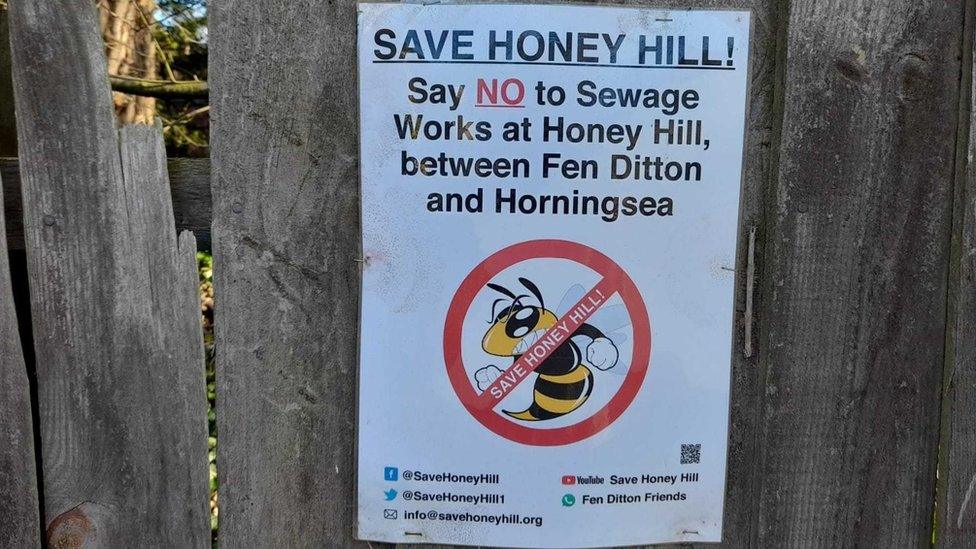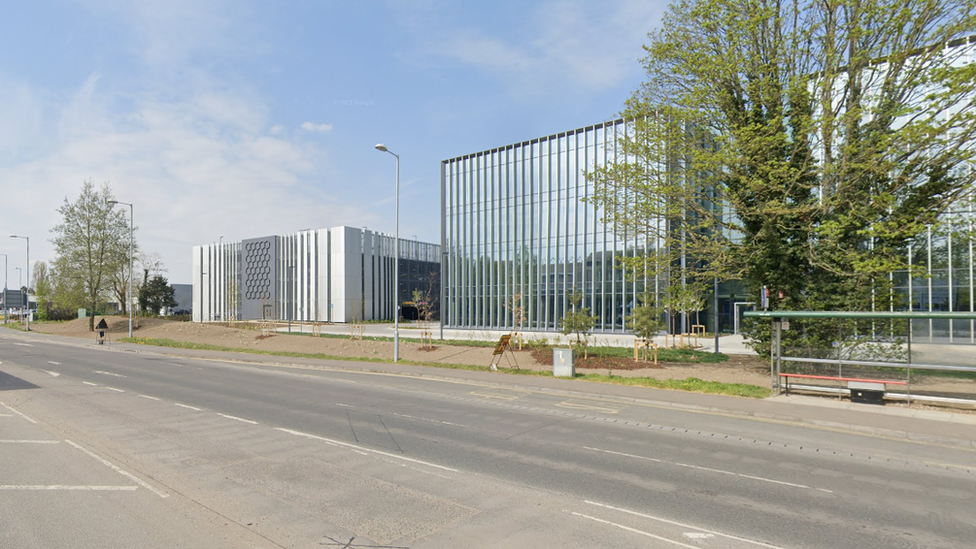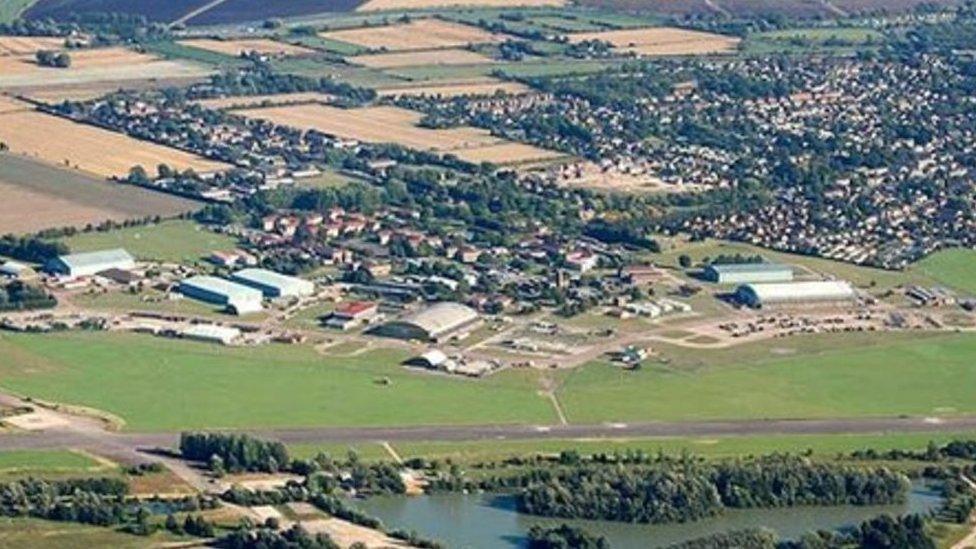Hundreds raise concerns about new Cambridge sewage works
- Published

Hundreds of people have objected to the plans for a new water treatment plant
Hundreds of people have objected to a new sewage works saying it would "destroy" the countryside.
Anglian Water wants to build a plant near Horningsea, close to Cambridge, to replace the current facility near Milton to make way for new homes.
Around 270 objections have been published in response to the company's application.
It said it will respond to representations as part of the process.
The Cambridge Water Treatment Plan is being moved to free up land for the North East Cambridge development which is set to include more than 8,000 homes and create 15,000 jobs.
Hundreds of people and groups have submitted objections to the planning inspectorate, primarily with concerns about the environmental impact.
Anglian Water said that the new site would be "operationally net zero carbon" and would "provide a long-term solution" to meet the demands of the growing population in the area.
In March 2019, £277m was allocated to Anglian Water and Cambridge City Council from the government to fund the project.
The government also wants to see the project accelerated as part of its new housing plans for the city.
The planning inspectorate will make the final decision on whether the new sewage works can be built.
One person said they were "horrified" and said there should be reconsideration about plans to "pour concrete on a green belt site".
Another said the greenbelt would be "broken and blighted" and raised concerns the plant would threaten local drinking water supplies.

People have objected to the environmental impact of the proposed new water treatment plant
However, there were supporters who said they agreed with the current proposals.
Those in favour of the site commented on the need for more homes, with one saying there is "a desperate shortage of housing across our region, and particularly in and around Cambridge".
The UK Health Security Agency also said it was "reassured" previous concerns it had raised had now been addressed. It said it was "satisfied" the proposals would not have a significant adverse impact on public health.
Anglian Water said the Honey Hill site was chosen after a "detailed site selection study" and it had amended the design of the plant to make it "more sensitive to the landscape and surrounding communities".
Anglian Water said "minimising odour as far as possible" was of "paramount importance".
It has submitted a Development Consent Order (DCO), which is the means of obtaining permission for Nationally Significant Infrastructure Projects (NSIP) which include energy, transport, water and waste schemes.

Follow East of England news on Facebook, external, Instagram, external and Twitter, external. Got a story? Email eastofenglandnews@bbc.co.uk, external or WhatsApp us on 0800 169 1830
- Published24 July 2023

- Published17 February 2023

- Published23 November 2021

- Published1 November 2021

- Published12 May 2023